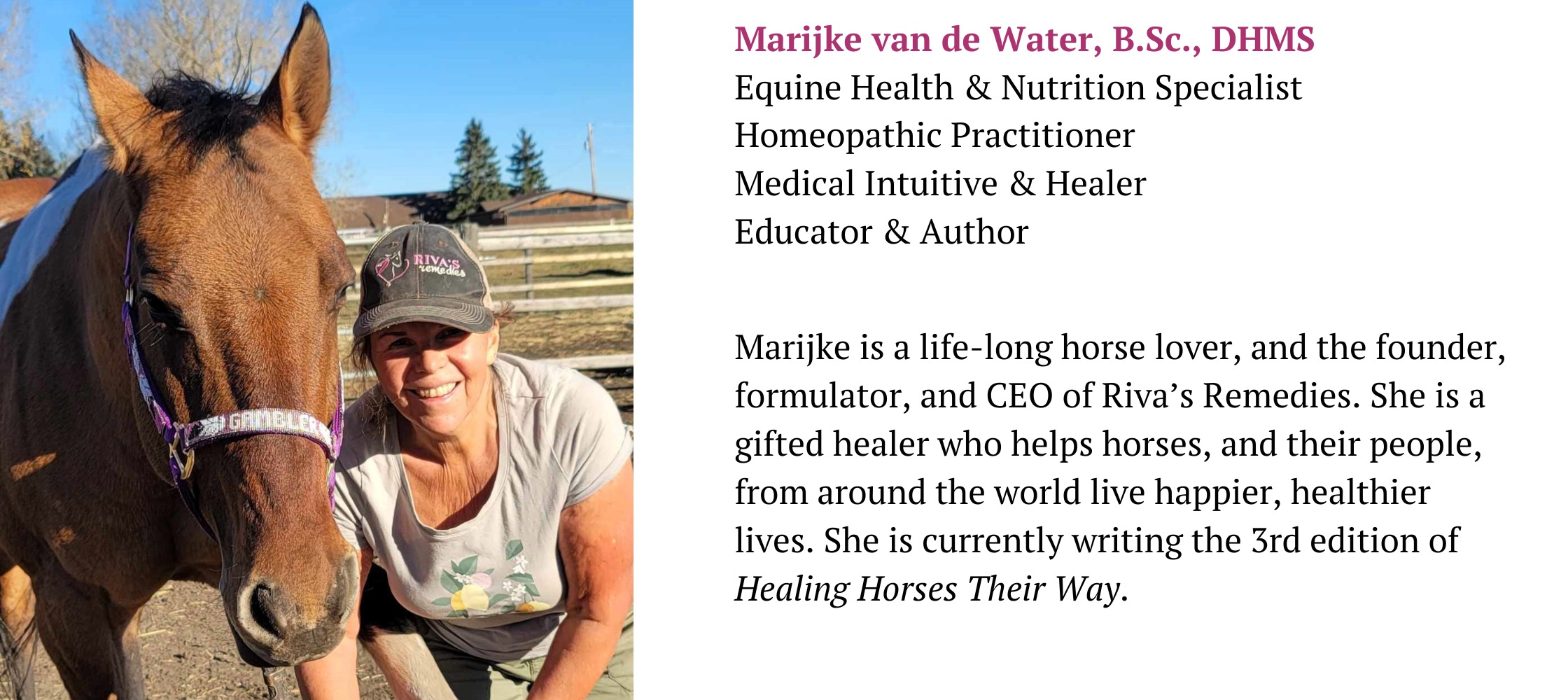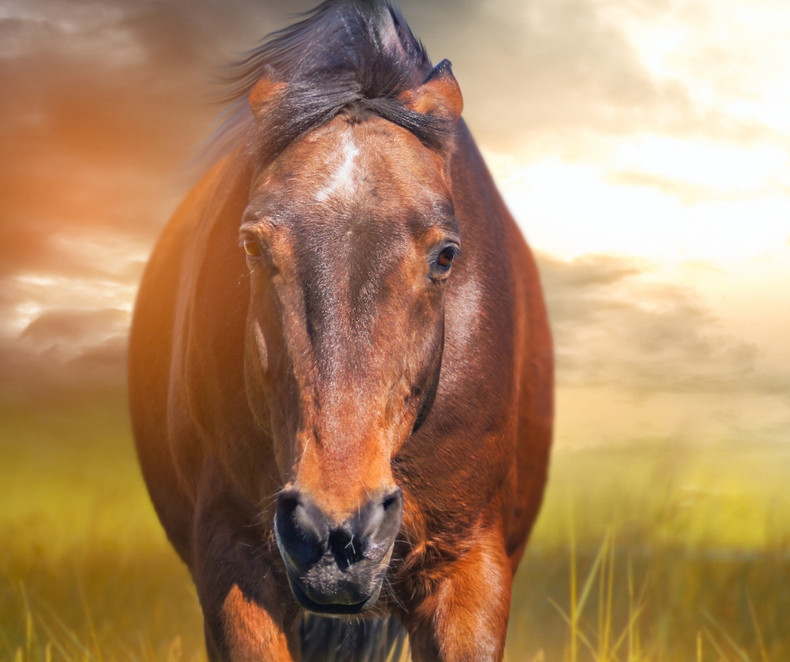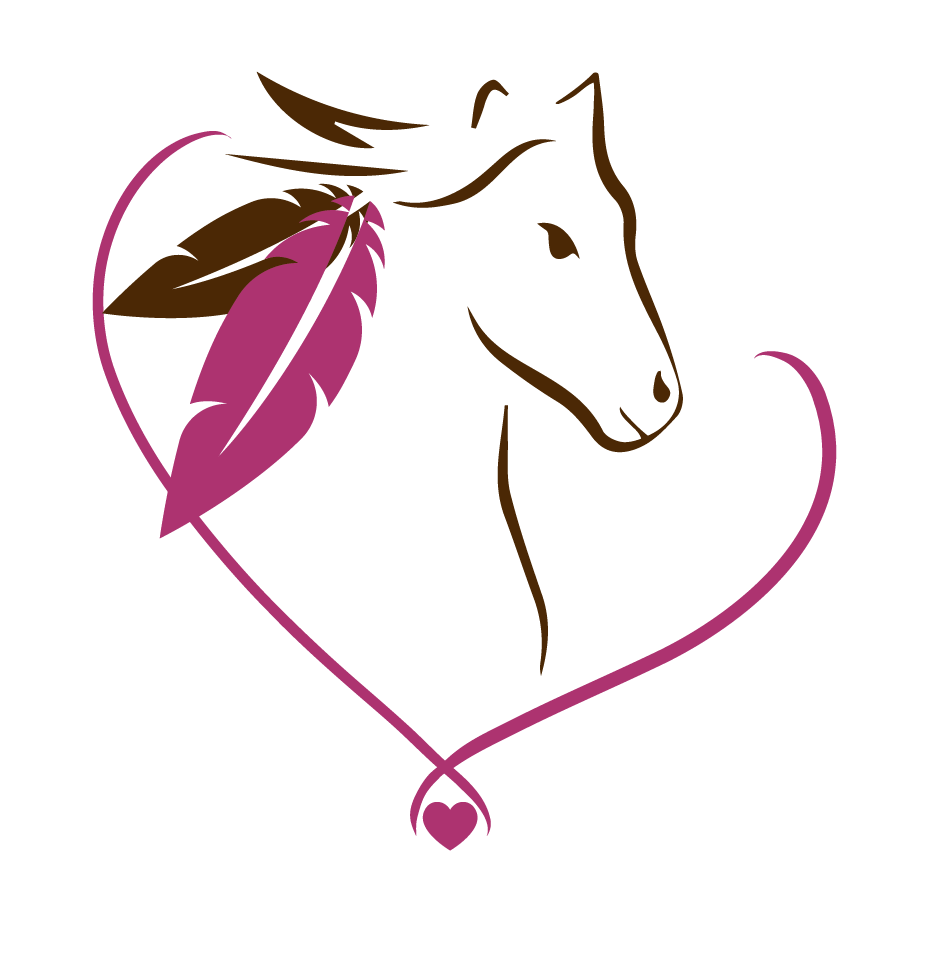How Mares Change with the Seasons
With spring here, and the twittering birds bringing in the longer days some of our pretty girls in the barn are starting to show signs of hormone changes. Or should I say hormone imbalances as for many of them, what should be a natural cycle, is no longer natural. And their imbalances are often the norm. These changes occur due to the hormonal fluctuations and can cause her to object to her normal routine including her willingness to cooperate as well as her overall performance. And that’s where the trouble starts for her people.
In the spring, after a dormant and non-fertile winter, their eyes absorb the extra light which activate the hypothalamus and the pituitary. The hypothalamus is the “master gland” and the coordinator of homeostasis, i.e., how the body functions to maintain balance and equilibrium in response to changes in the internal and external environment. Thus, the hypothalamus is the link between the nervous system (brain) and the endocrine system (hormone-producing glands). First it receives information from its environment which includes body temperature, blood pressure, blood circulation, fluid balance, hunger, thirst, sleep, metabolism, hours of daylight, appetite, libido, stress, and emotions. And then it elicits a response from the body by stimulating the pituitary gland with neurohormones.
Based on the information that the hypothalamus receives in early spring, the pituitary produces two hormones: follicle stimulating hormone and luteinizing hormone, both of which stimulate the ovarian follicles to secrete estrogen and progesterone. These reproductive hormones normally result in 21-day cycles of estrus whereby ovulation (when the mature egg leaves the follicle) occurs around day 16. It is now that the mare shows her signs of heat lasting anywhere from 4-6 days.
Most mares have their first ovulation in May, but with so many imbalances out there, hormone fluctuations may start sooner or later or last all year. And some mares may come into heat, but don’t ovulate; while others ovulate but have silent heats.
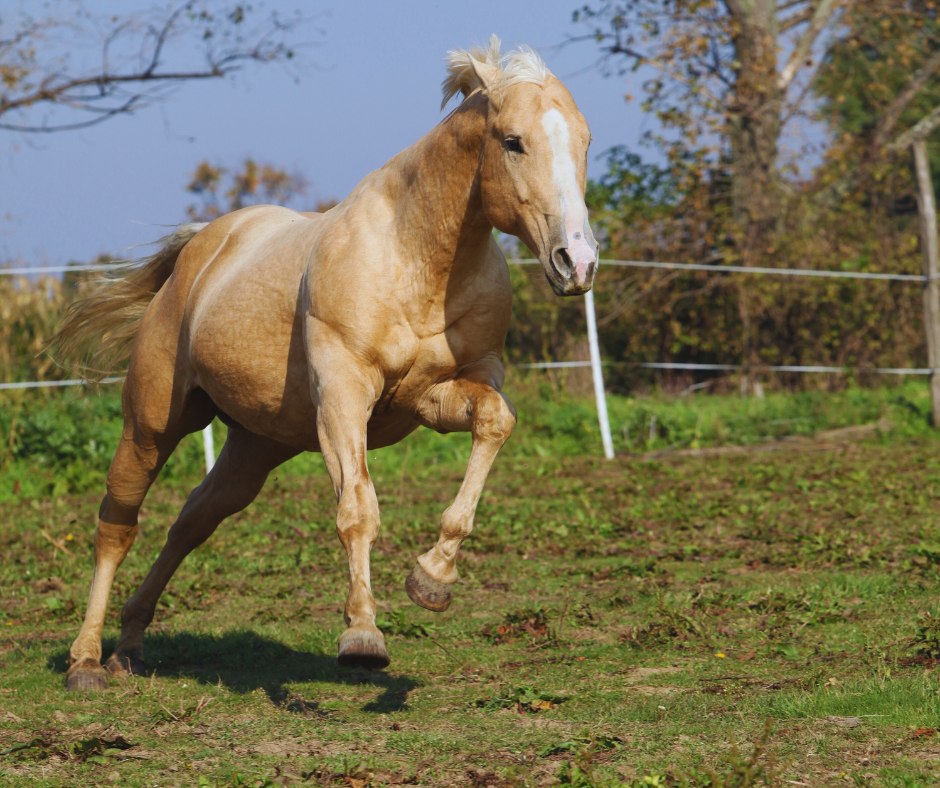
Symptoms of Mare Hormone Imbalances
While estrus should be a normal and natural cycle for our mares, hormone problems have become too common and is affecting both their physical and emotional health. That’s because excesses or deficiencies of estrogen, progesterone, or testosterone create various symptoms affecting reproductive health, metabolism, and immune function. These imbalances can also stimulate the smooth muscles in the reproductive tract and change the chemistry in the behavioural centres of the brain.
Physical symptoms can include uterine pain during ovulation, cramping, colic type symptoms, sweating, chronic cycling, and frequent urination. Mares may also be diagnosed with back pain. We very often don't think about back pain in horses as being hormonal, but cramping, spasms, and generalized stiffness and soreness can all be due to problems during estrus.
Many mares also experience mental and emotional problems including agitation, anger, irritability, aggression, squealing, depression, fatigue, withdrawal, and anxiety, all of which affects their ability to cooperate with their humans, as well as their herd.
Don’t dismiss these problems as personality or training problems. A hormonal mare cannot think clearly or stay calm. Hormones are powerful chemicals that affect brain function, and the health of the nervous system.
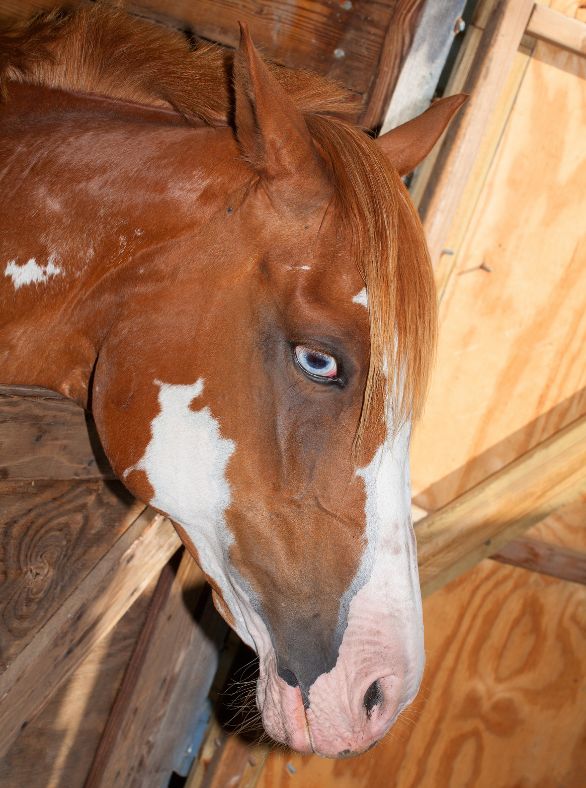
How Can We Help Hormonal Mares?
The holistic model is essential and allows for a comprehensive approach rather than a quick fix which isn’t in the best interest of our horses. Whole health considers the physical, emotional, and environmental factors that may be contributing to their overall wellbeing. And in this way, we can offer natural, safe, and effective solutions to maintain good health. In most cases, a horse’s lifestyle is part of the problem and therefore our horsekeeping is an important part of the solution.
Let’s take a look at some of the actions we can take.
Stop the Hormone Suppressants
Sort out the underlying problems that are causing the hormone imbalances before you reach for the drugs to suppress their heats and their emotions. Suppressing hormone production with medication results in side effects and secondary health problems later on. Unfortunately, synthetic hormone-suppressing drugs are hugely popular in competition where riders and owners don’t want to take the time for any hormone problems that may cause them to miss out on the events, or give up prizes and money. But they should know that dealing with the root causes of these hormone issues will give them a happier and healthier horse with a longer and grander future. People have to realize that a horse can stay in competition – naturally. If only we would meet their needs.
Our mares deserve to be heard, not shut down.
The most common drug is altrenogest, a synthetic progesterone used on both pigs and horses to suppress estrus. It is given orally or by injection and is widely used on the show circuit. Its mechanism of action is the suppression of luteinizing hormone and the interference of fertilization by thickening the cervical mucus and disrupting the implantation of the egg. It is also known to modify behaviour. Side effects are numerous and may include weight gain, deleterious effects on uterine and mammary tissues such as uterine infections, endometritis, and the development of cystic follicles. In addition, altrenogest isn’t safe for people which is why it must be handled with extreme caution including gloves worn so that accidental absorption doesn’t cause a disruption to the human menstrual cycle, prolong a pregnancy, or cause serious reproductive system disorders. It is also a risk hazard for men and women with heart disease, strokes, breast cancer, hormone-related tumours, or liver dysfunction. It is also contraindicated in mares with uterine infections. And the injectable form can cause discolouration of the coat, hair loss, and hair thinning at the injection site.
Does that sound like something you want to give your horse?
But altrenogest doesn’t always work so medroxyprogesterone (MPA) was finding it’s way into use. MPA is used for birth control in humans and is not intended for horses. But nevertheless, horses were being overdosed with it despite that there was no evidence that it had any effect on suppressing ovulation but instead was being used to modify mental behaviour in mares, geldings, and stallions by tranquilizing them. After twenty-three fatalities over three years were associated with its use, MPA was banned in both the U.S. Equestrian Federation and the FEI.
Now let’s hope that they don’t pursue a vaccine with a GnRH hormone to “manage” normal mares by suppressing pituitary hormone production. It would be rife with side effects.
Find the Underlying Cause
In order to support our mares effectively we must understand what the most common causes of hormone imbalances are. Domestic lifestyles, and of course a competition life, have a significant influence over our mares’ reproductive and mental health. Have your mares checked for medical issues including infections, clean up the diet, discontinue alfalfa, offer freedom to move and play, ban stall life, provide companionship, and reduce stress levels.
The Hormonal Mare Checklist
> Limit alfalfa or eliminate it altogether. Alfalfa can overstimulate the pituitary gland. Alfalfa also contains phytoestrogens. So many show horses are being fed so much alfalfa it’s easy to see why their hormones are “hot”.
> Use caution with commercial feeds. Not only do soybeans and some grains contain phytoestrogens but they often contain preservatives and chemicals that interfere with the endocrine pathways.
> Keep stress levels to a minimum. Chronic stress results in hormone imbalances including estrogen, progesterone, testosterone, adrenaline, and cortisol. If your horse is aggressive, irritable, and unhappy there is a reason. Try listening instead of medicating.
> Give your horses some freedom no matter what their discipline is. Confinement (think stalls and small boarding paddocks), isolation, no companionship or touching other horses, lack of free exercise, and no play time are all common stressors that no horse should be subjected to.
> Check your mares out for low-grade infections. Infections can cause changes to the duration of the cycles or seasons by causing enlargement of the ovaries resulting in hormonal problems and behavioural issues.
> Check your mares for ovarian cysts. They are usually benign but can cause the secretion of excess estrogen or even testosterone which could result in an increase of aggression or other behavioural changes.
> Mind the liver and the hindgut. A horse that has a lot of toxicity cannot metabolize hormones normally. Both the liver and the microbiome play important roles in balancing reproductive hormones.
> Reflect on your own hormones and behaviour. Mares are constantly “sponging” or mirroring the hormone imbalances and stress levels from their female handlers and riders. The only option in this situation is to get your own health in order.
Go Natural
Providing our horses with key nutrients and herbal medicines gives them the building blocks and positive energies to balance their own hormones and promote mental and emotional wellness. A solid natural health program also supports a strong and healthy immune system, muscles, and bones.
Recommended Supplements

Herbal Blend for Mares: ¼ cup daily These herbs are blended to support mares with hormone imbalances, contributes to a heathy reproductive system, helps regulate the cycles, and maintains naturally calm behaviour.
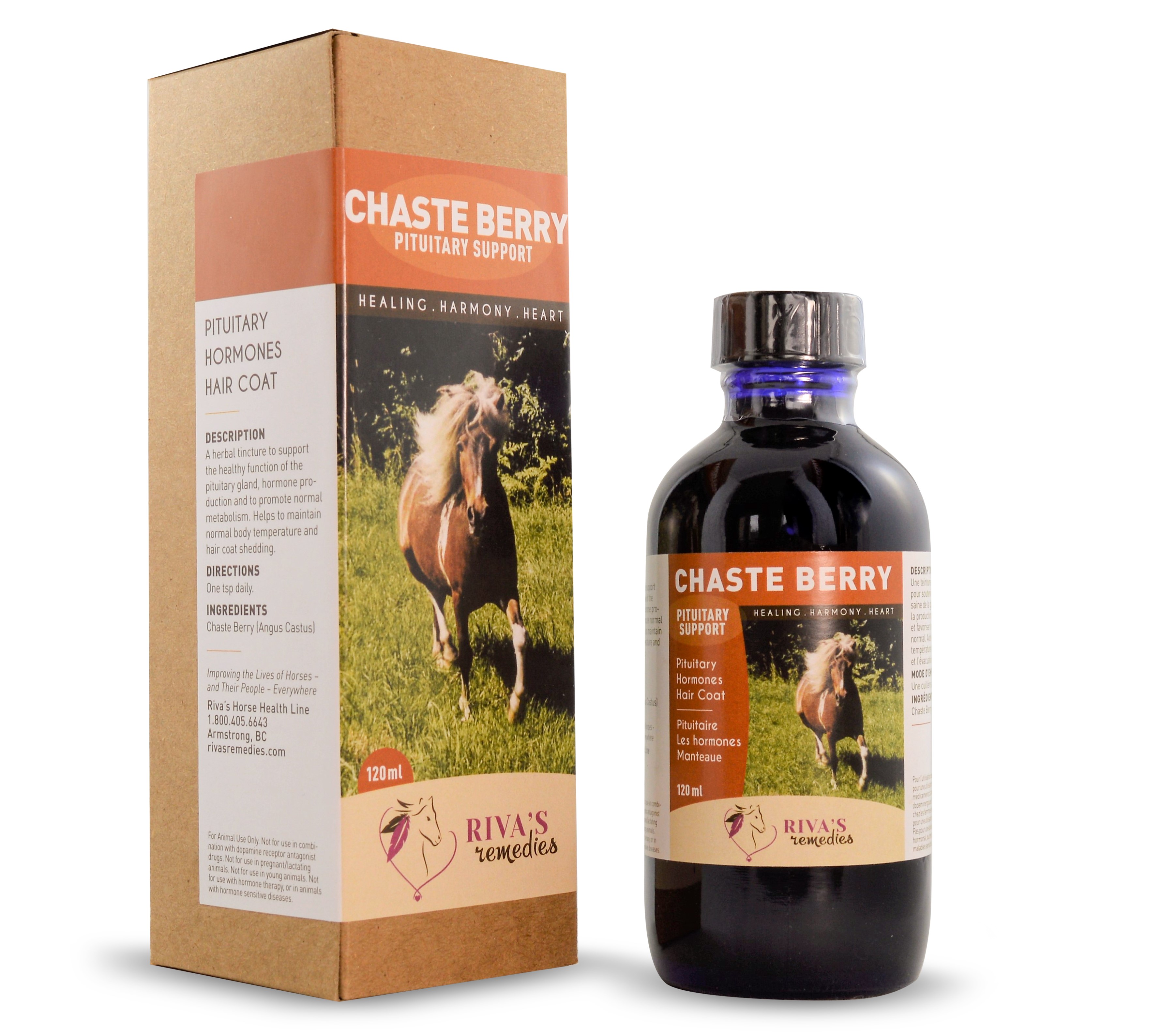
Chaste Berry Tincture: 1 tsp daily as needed Chaste Berry is a traditional herb to support pituitary gland function and hormone balance. It can also support those horses with PPID.
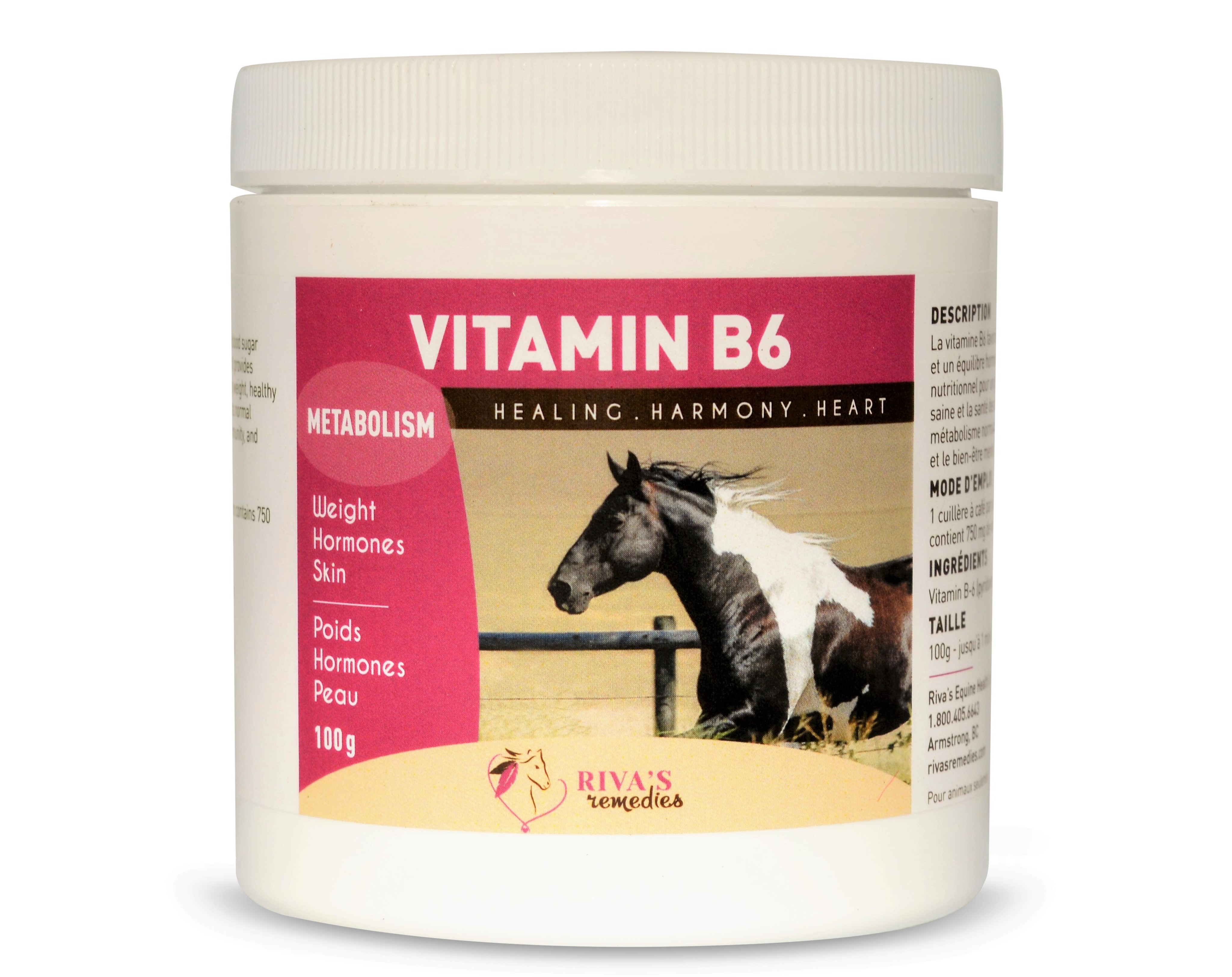
Vitamin B6: 1 tsp daily (= 750 mg) A key nutrient to maintain hormone balance, mental wellness, and support emotional health. Vitamin B6 also promotes normal thyroid function.
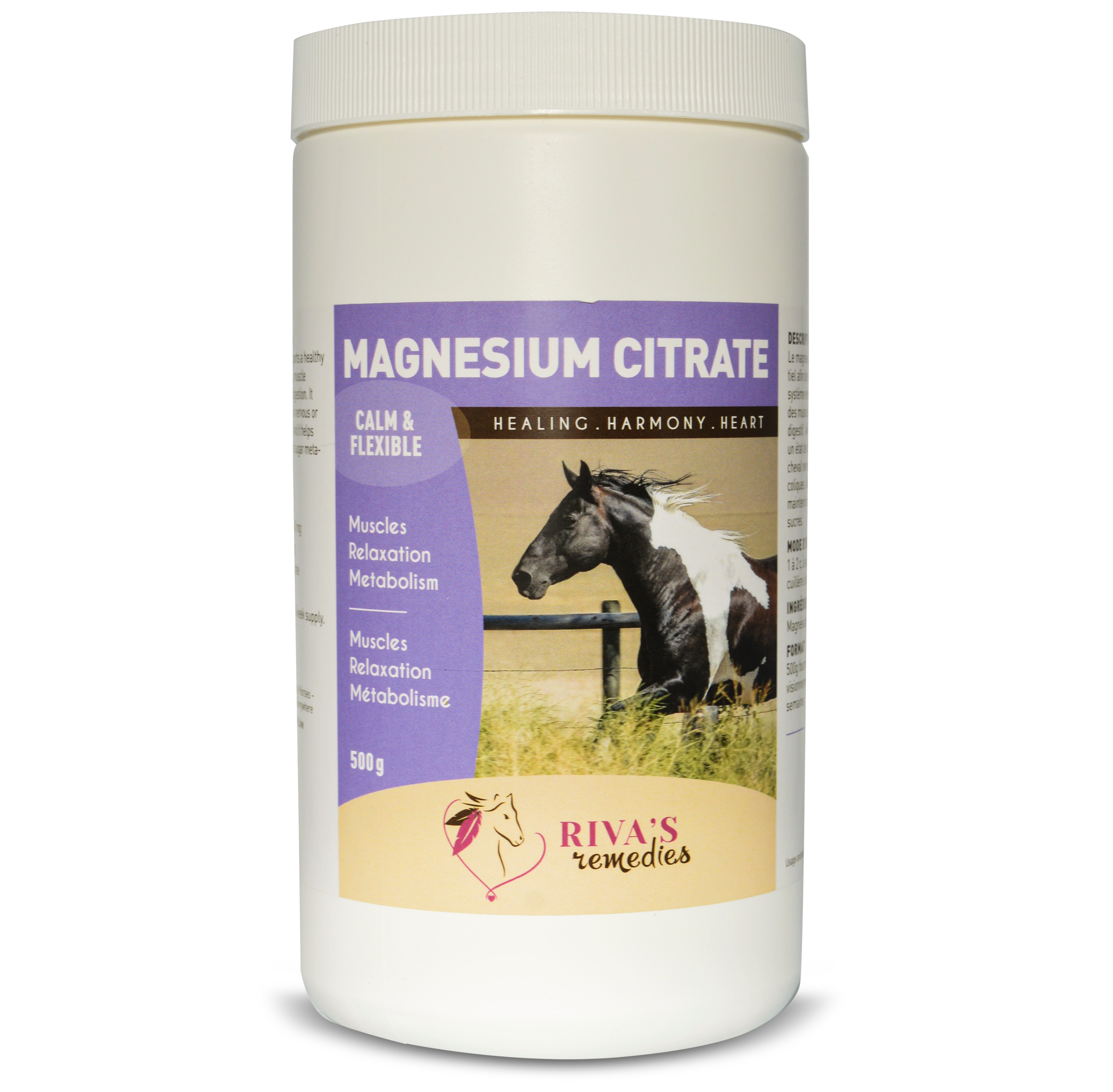
Magnesium Citrate: 1-2 Tbsp daily as needed (1 Tbsp = 1,540 mg) Magnesium is frequently used to ease muscle tension, support the nervous system, and promote relaxation and calm in nervous horses. It also helps to maintain sugar metabolism in horses prone to weight gain.

Riva’s Borage Seed Oil: 1 tsp daily Borage Seed Oil is a healthy balance of omega 3 and 6 essential fatty acids to support hormones, reduce inflammation, maintain the immune system, and promote adrenal health.
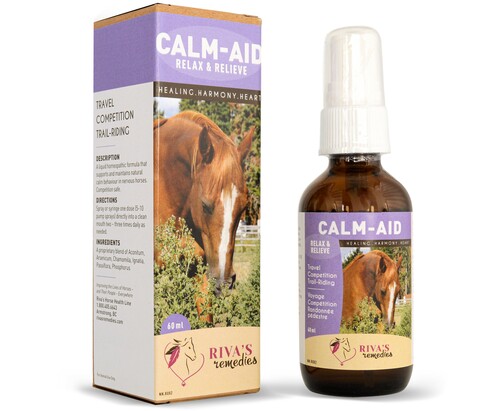
Calm Aid: One dose (5-10 sprays) sprayed or syringed directly into a clean mouth. A homeopathic fast-acting liquid to support and maintain calm behaviour in anxious horses. Competition safe.

Mare Hormone Bundle Special: The Hormone Bundle Special is a combination of the Herbal Blend for Mares, Vitamin B6, and Riva’s Borage Seed Oil at a special price.
What Our Customers Say
“I am so thankful for the Herbal Blend for Mares because I could not ride my barrel racing mare when she was cycling. The difference is like day and night. Now she is focused and hardly shows any signs when she is in her cycle.” …C.L. Ross
“I am so impressed and LOVE my Riva’s Remedies herbs and so does my horse Greycie, that I just have to gush a bit and want to share with everyone! She had a sore back, and I had an ultrasound done to see, and guess where it started… with her hormones! Once she was on the Herbal Blend for Mares, no more sore back! It is a wonderful correlation to see just how important a horse’s hormones really are!” … Tia
*Please note: We provide a thorough selection of our natural products to help you choose the ones that are best suited for your horse. If you need additional assistance in making the right choice, feel free to reach out to us.
